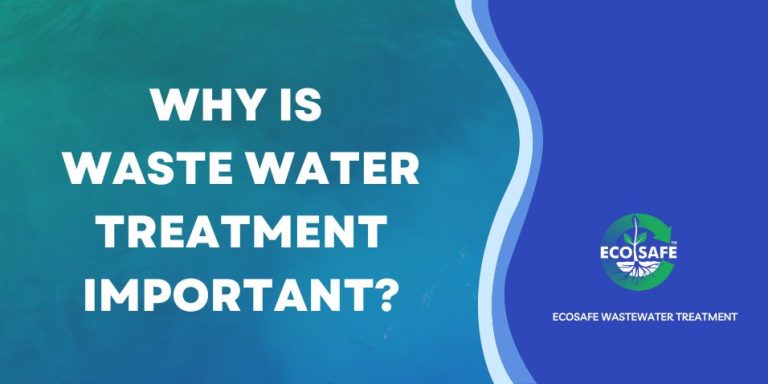Our Reclaim Waste Ideas
Table of ContentsReclaim Waste Fundamentals ExplainedNot known Details About Reclaim Waste All About Reclaim WasteThe Buzz on Reclaim WasteHow Reclaim Waste can Save You Time, Stress, and Money.
Discover the types, occurrences, and types of liquid waste. Domestic sewer waste refers to the waste and products from a property septic system. This type of waste is developed by people in homes, institutions, and various other buildings. This only consists of sewage-disposal tanks that have a drain field. The appropriate management and disposal of residential sewage waste require fluid waste to be transferred to a sewer treatment plant where the appropriate methods and tools are applied to cleanse and dispose of waste.
Commercial waste often consists of prospective dangers, such as flammable products or a combination of liquid and solid waste products, and needs a more sophisticated and in-depth disposal procedure. The disposal of commercial waste commonly includes the purification of waste prior to transportation to guarantee secure and proper disposal. Industrial waste is developed from byproducts and overflow of commercial processes and production.
This kind of waste can not utilize the same sewage monitoring transport or processes as septic or commercial liquids. The industrial waste monitoring process requires the assessment and screening of fluid waste prior to it undergoes the disposal procedure (liquid waste removal melbourne). Overflow waste is the liquid waste that originates from drainage and excess stormwater in extremely inhabited locations or cities
Drainage waste can create contamination and flooding otherwise dealt with correctly. Discover more regarding sewage system cleaning and waste management. Ensuring appropriate waste management can protect against catastrophes and decrease ecological damage. Both people in property setups and experts in industrial or production sectors can gain from understanding the procedures and policies of fluid waste management.
The Ultimate Guide To Reclaim Waste
Contact PROS Services today to learn more about our waste monitoring and disposal services and the proper methods to take care of the liquid waste you produce.
Do you know what takes place to your water when you disengage, purge the bathroom or drain the washing equipment? No? Well, it deserves knowing. This so-called 'wastewater' is not only a crucial resource however, after therapy, will be released to our land, rivers or the ocean. Made use of water from commodes, showers, bathrooms, kitchen sinks, laundries and commercial processes is referred to as wastewater.

water utilized to cool machinery or tidy plant and devices). Stormwater, a kind of wastewater, is overflow that streams from farming and metropolitan areas such as roof coverings, parks, yards, roadways, courses and rain gutters into stormwater drains pipes, after rainfall. Stormwater streams unattended straight to neighborhood creeks or rivers, eventually getting to the ocean.
The Best Strategy To Use For Reclaim Waste
In Queensland, the majority of wastewater is treated at sewage therapy plants. Wastewater is carried from domestic or industrial sites with a system of sewers and pump stations, recognized as sewerage reticulation, to a sewer therapy plant.
The Division of Natural Resources encourages neighborhood federal governments about handling, operating and keeping sewage systems and treatment plants. In unsewered locations, regional federal governments might require householders to set up specific or home sewer therapy systems to treat domestic wastewater from toilets, cooking areas, washrooms and washings. The Division of Natural Resources authorizes using household systems when they are verified to be efficient.
In some brand-new subdivisions, therapy of some stormwater to get rid of litter, sand and gravel has begun making use of gross pollutant catches. Wastewater therapy happens in 4 phases: Gets rid of strong matter.
Wastewater after that streams into large storage tanks where solids clear up and are eliminated as sludge. Oil and residue are skimmed from the surface area. Makes use of tiny living microorganisms referred to as micro-organisms to break down and remove remaining dissolved wastes and great particles. Micro-organisms and wastes are incorporated in the sludge. Gets rid of nitrogen and phosphorus nutrients that can trigger algal blossoms in our waterways and endanger aquatic life.
The 45-Second Trick For Reclaim Waste
Nutrient removal is not readily available in any way sewer therapy plants because it calls for expensive specialist equipment. It is ending up being more common in Queensland. Clear fluid effluent created after therapy may still contain disease-causing micro-organisms. If this effluent is released right into rivers such as rivers or the sea, the micro-organisms will eventually die out.

This usually suggests wastewater needs to be dealt with or impurities eliminated prior to it can be discharged to rivers. Most wastewater moves right into the sewage system. Under the Act, regional federal governments carry out approvals and licences for ecologically relevant tasks (ERAs) entailing wastewater launches that may have a local impact. The department administers approvals and licences to Periods including wastewater releases that may have a local or statewide impact.
Fascination About Reclaim Waste
Tracking supplies factual details about water quality and can validate that permit conditions are being met. The information acquired with monitoring supplies the basis for making water quality decisions.
Comments on “7 Easy Facts About Reclaim Waste Shown”